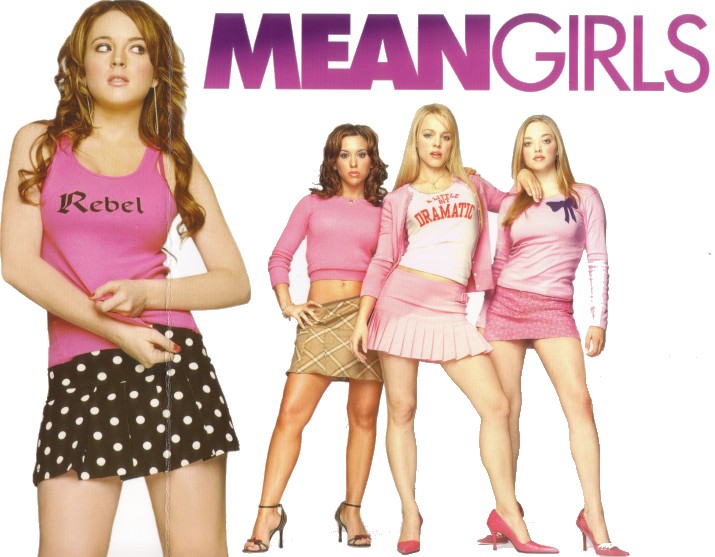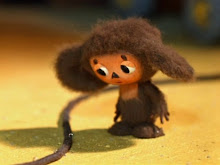Wednesday, March 10, 2010
Blogger, Glogger, Pogger!
As I wrap up my talk about "War" and my World War I exam #2, I want to look back at the work I did and why I did it. I chose blogging because it's something new for me. I mean, I've done the Powerpoint MAANY times now, I've done Glogster which I plan to go back to because I enjoyed it, and I've created videos in the past. I've never really completed a blog and I must say...it is quite a lot of fun. I mean, this isn't a traditional paper and I like that because I don't have to stick to the information. I can talk about what I want and trail off. My paper isn't based on the correct grammar or vocab but on my ideas and what I want to talk about. The only thing is I would enjoy a little more freedom on Blogger. I mean, Blogspot does give a lot of freedom like choosing pictures, fonts, layouts, and stuff on our sidebar, but I like Glogster and Powerpoint a lot too because I get to choose the exact background and the EXACT layout and the exact theme or color of my entire presentation. Blogger does give me that choice but not as much. In the future, I would like to work more on getting more ideas on my new blogs...somehow connecting each post to something else that everyone else can relate to...to make it more friendly. I'd also like to add a little more spice and life into the little side bar...right there...to the right if you'd move your eyeballs. Well yep...I think I've had my share of opinions. Til next time history-lovers...haha, that's cheesy!
Mary. Marie. Mmm...FOOD!!

If the primary source "War" were to look at America today, it would say a number of things. Here's a little skit for all you guys:
(at some school, during lunch, outside...Mary and Marie are hanging out)
MARIE: Come on Mary, let's eat with Carla and her friends today. She totally likes us, I think!
MARY: But we promised Suzie we'd sit with her. Her mom even packed all of us some cake from her birthday!
MARIE: Come on, cake is for losers anyway. Carla says that the "new" food to eat is salad with water and a spritz of lemon. That's what I brought for lunch today. She says we should eat it to be cool, like the starts on TV!
MARY: But...I....I--
MARIE: Yeesss?
MARY: I---(tone suddenly changes to fake, depressed way of speaking) I didn't bring....a salad.
MARIE: Oh, you can share with me. Carla says its not good to eat a lot anyway...
PIRANDELLO: Typical. (*sigh*) Girl wants to fit in. Girl tells other girl to fit in with her. Girls do what they are told without thinking of what they want.
(*45 minutes later...after lunch)
MARY: I thought you said Carla LIKED us. Why did she just treat us like that?
MARIE: She doooeess!!! You'll see, by tomorrow, she'll change. It's always like this,
CARLA: (approaches with a smirk) Marie, you and your little friend don't have to sit with us tomorrow anymore. There---isn't enough room. (evil smile, kind of like Regina George from the movie Mean Girls)
MARIE: Thanks a lot Mary!! You totally screwed this up!
MARY: Screwed what up? You're the one who didn't let me have any cake!!! I heard it was from Carlo's Bakery, you know that place that's on TLC??? It's like reeallly good apparently, but thanks to YOU, I haven't even been able to try it.
SUZIE: Hey guys. Where were you today at lunch? I thought we were going to have a little cake!
(Marie, Mary, and Suzie's other friends walk by talking about inside jokes, Suzie laughs along.)
MARY: What was that all about?
SUZIE: Oh...it's nothing. It happened at lunch and well...you kinda missed out.
MARY: Oh.
SUZIE: But I saved you guys some cake. I mean, just a little, everyone basically tried to get more.
MARY: Thanks Suzie!
MARIE: Yeah...thanks.
SUZIE: Meet me after school.
(after school, outside of the building)
SUZIE: Here you guys go!
MARIE: Mmm! This is insanely good!!!
SUZIE: Haha yeah...
MARY: Look, we're sorry we weren't at lunch today---
SUZIE: Oh, it's totally fine....
MARIE: So what was that joke about anyway?
SUZIE: Oh well you see, Trisha knocked over her water and....(scene fades as girls walk home together talking about the day, laughing)
PIRANDELLO: This is the perfect example of my primary source. The two girls, especially Marie, were told it would be good to do something they didn't like. They didn't figure out that they shouldn't do that until they figured out that it wasn't fun or worth it anyway. Things like this happen in America all the time. It's called peer pressure. Cliques and girls and even guys just have to fit in with a certain group or they're considered "uncool."
Assimilation and Adjectives (& DEMENTORS!!!)

Assimilation and Hidden. Two words that describe Pirandello's primary source. Yep you guessed it..."WAR!!" What a shocker!
The dictionary give the word assimilation as: (noun) - the act or process of taking in and incorporating as one's own. So how does this relate to the lonely primary source? Well in the story, everyone was told to do one thing...mostly by the traveler with the dead son. Once again, he said not to grieve any of their children...not that they don't deserve the love, they just don't need the tears. So all of the parents became assimilated and all morphed into the same thing. They all did what they were told to do...felt what they were told to felt. Those parents didn't know that they all have different feelings. Don't you ever have that? You know you have something jumping inside of you...a certain feeling trying to get out but you're just supposed to feel happy because it's your dad's birthday or sad because your friend just broke their arm. Well that's what happened in the primary source...get it?
Next word. Hidden. It's given as a (adjective) - concealed, obscure, covert. In this source, the truth was hidden. The truth that death never dies down, death never becomes good, death is just death and no one can say or do ANYTHING to make it look better. But the fat traveler attempted to do that. He put this veil on the ugly truth that death just hides people from the bad side in life. That it isn't worth all the tears because people died from trying to fight for their country. Suddenly, like a band aid, one of the women just says..."he's dead" and in a way, you know she's kind of saying..."face it, man! You're in denial!!!" So yes, this source hides everything until the last minute which is why hidden can describe it in a good way.
Sooooo yeeaaahhh....go out and describe literature in any way you can. It's a lot of...umm...fun!!! Really...try it. :) You'll learn a lot.
The dictionary give the word assimilation as: (noun) - the act or process of taking in and incorporating as one's own. So how does this relate to the lonely primary source? Well in the story, everyone was told to do one thing...mostly by the traveler with the dead son. Once again, he said not to grieve any of their children...not that they don't deserve the love, they just don't need the tears. So all of the parents became assimilated and all morphed into the same thing. They all did what they were told to do...felt what they were told to felt. Those parents didn't know that they all have different feelings. Don't you ever have that? You know you have something jumping inside of you...a certain feeling trying to get out but you're just supposed to feel happy because it's your dad's birthday or sad because your friend just broke their arm. Well that's what happened in the primary source...get it?
Next word. Hidden. It's given as a (adjective) - concealed, obscure, covert. In this source, the truth was hidden. The truth that death never dies down, death never becomes good, death is just death and no one can say or do ANYTHING to make it look better. But the fat traveler attempted to do that. He put this veil on the ugly truth that death just hides people from the bad side in life. That it isn't worth all the tears because people died from trying to fight for their country. Suddenly, like a band aid, one of the women just says..."he's dead" and in a way, you know she's kind of saying..."face it, man! You're in denial!!!" So yes, this source hides everything until the last minute which is why hidden can describe it in a good way.
Sooooo yeeaaahhh....go out and describe literature in any way you can. It's a lot of...umm...fun!!! Really...try it. :) You'll learn a lot.
Tuesday, March 9, 2010
Comedy and Tragedy (no alliteration needed)

Comedy and tragedy...they are the two things William Shakespeare is best known for. We all know about these two words from common sense. Comedy may be funny and it answers all questions. Tragedy and SAAAD and it has ONLY questions. Comedy and tragedy are both represented in Pirandello's primary source. How? You wonder...here's how:
COMEDY: It's ironic how the fat traveler is the one telling the fellow parents to forget about the death of their children. In the end, everything gets uncovered, and he begins to SOB sad little tears. There are no questions because it seems like everything is accomplished. The sons have gone off to war and the parents have realized it's okay to grieve...in fact, it's normal and something people SHOULD do.
TRAGEDY: Same scenario. Woman tells man..."your son is REALLY dead!" Man cries. This same scenario is taken in another direction though...tragedy. There are only questions. The audience wonders how the traveler never grieved his son until then. There is only awkward silence...if this were to happen in real life. Why? Well, the woman just basically punched the man with honesty and he begins crying and all the parents just sit there staring, in their heads, thinking I told ya so!!! Even though it is no time for jokes...because once again, we have fallen into the realm of tragedy.
So all I'm trying to say is that every scene and every thing in general has a bit of comedy and a bit of tragedy. All we need to do is look a little deeper...and there it will be. :)
School, Siblings, and Salad

I must admit, learning from Zinn and Pirandello is not the easiest thing, even for eighth grade. That's why for a fourth grader, it will be even tricker. However, I believe anyone can learn anything...just in different ways. To the fellow fourth graders out in the world:
Have you ever had a time when your parents told you to "never say never" or "eat your veggies...you'll like broccoli, don't worry" or "be nice to your siblings." This may have happened when you were in kindergarten or even now. But you never actually thought about this action. You just kind of didn't do it because your parents told you not to do it and you think..."well...they are my parent." So you eat your vegetables and are automatically nice to your siblings. But later on, you realize that "oh my god...this totally isn't me. I HATE BROCCOLI!!" Here's the thing: everyone has personal taste. Some people like cats and others like dogs. So if you don't like broccoli, you don't like it. You may still have to eat it but it doesn't mean you like it, like other people told you.
Seeing as you are in elementary school and have not yet entered the realm of drama...don't worry, it's not that bad, but has there ever been a time when your friend told you not to do something because "that's not cool..." Don't listen to them. If you like what you are doing, do it...unless it is killing someone...in which case, there's a problem. Peer pressure. Self esteem. All things you have started to learn.
Another thing Pirandello can teach you:
The truth. In the story of "War," the fat traveler got hit in the face with the truth...his only son as dead. DEAD! Haven't you ever put up a curtain of pretty, sparkly unicorns when in real life, you're trapped in your room because you hit your little brother. You think...I didn't do anything wrong. Come on! He started it! But in real life, you did hurt someone and it was not right.
So in the end...it turns out...history can teach a lot. GASP! So all you fellow fourth graders, keep learning and don't start complaining when your teacher tells you to take out your textbooks. You might...learn...A LOT!!!
Friday, March 5, 2010
Movies, Mystery, and Music

I shall now continue on about "War," by Luigi Pirandello. But I must say, I love the post I am about to write because I get to connect this to something I have enjoyed in the past...not that I don't enjoy doing social studies, ahem, of course not...ahem! There is a certain mood and idea set in this story. The first connection I am about to make is quite concrete, it's "right there!" No one can miss it. MYSTERY. We all love it, don't we? The suspense, the murders...the unsuspected murder--ER!! An who better to write great mysteries than Agatha Christie?? I don't know one person who has not heard of her. I personally LOVE her books. Each one has some original plot and ending...not just "man dies, man is found, murderer is found, murderer is punished." During the entire time in the story "War," the fat traveler puts an invisible fog around the train that causes parents to see the upside of war. He causes himself to think that his son should not be grieved. But at the very end, everyone gets hit with the shocker...the traveler himself cries, bawls, and fusses over his son's death. This is similar to And Then There Were None, by Agatha Christie. During the entire trip at the house, all the travelers either think they're safe or the murderer is just someone not affiliated with them. Too bad until the end when the only one remaining heroine figures out the murderer was one of them. It's a shocker that no one could think of. Really, though, any mystery can be connected to "War." They all have that shocker at the end that causes our minds to go back to all the past events. It's just natural.
Another thing that sets this idea of the primary source is what every teen watches on T.V. DRAMA! It has the same effect as Agatha Christie's mysteries. In every drama tv series, there is the shocker at the end that has us want to keep watching. I myself am an addict to this. In Grey's Anatomy, there is always some patient or main character that has some secret. For example, Izzie had Stage 5 Metastatic Melanoma! Like...what the heck??? In Gossip Girl, another secret is held until the last minute...actually, many secrets. It's GOSSIP GIRL! Anyway, all of these dramas and soap operas do exactly what "War" did. Both of these have some mild problems during most of the "time slot" and at the very last minute, something is unleashed that is unexpected. Even the music in this shows is dramatic. That's just how T.V. works....and I guess Luigi Pirandello.
Thursday, March 4, 2010
Lines and Life

There's always something that sticks to a person's mind. Why do we keep watching that junk on T.V. called "reality t.v." when it has no point? Why do we not put down that Harry Potter book when our parents call us to dinner? Why do we want to go back to Hawaii for another vacation? It's because something in there stuck to our brains that had meaning. Oh no! Snooki got into a fight! Harry was brutally injured! Hawaii was just marvelous!! Face it, our minds don't let us stop, no matter how hard we try. I once watched an entire marathon of "I Love New York" with my friend because every last episode had some line that drew my attention!!
"War" had the same effect with its line. Pirandello has two specific lines in this piece that really drew my attention to it. The first one is one of the last lines. It's always like that, isn't it? The closing HAS to be so special it just sticks with us. I quote him,
"For some time he tried to answer, but the words failed him. He looked and looked at her, almost as if only then-at that silly, incongruous question-he had suddenly realized at last that his son was really dead-gone for ever-for ever."
I like this line a lot because of the way Pirandello wrote it. Just like Edgar Allan Poe, he repeated himself a couple of times for a bigger effect. His son was gone for ever, FOR EVER! It makes you think, oh my god, his son really is gone for ever...FOR EVER! Not only this, but this line has a very big meaning. It's the line that breaks the reader, and the fat traveler, into reality. It shatters the pink, pretty glass and has you realize what life really is. When the man was explaining about children and war, he made it seem like he was truly over grieving his dead son. He shined this light upon all the other parents that they shouldn't be sad as their children died happily, maybe even peacefully by their side. But the question that the lady asked really was the knife that shattered the glass. As it makes the man see that death isn't something you'll ever get over, it makes the reader see that you can never really talk yourself out of what you really feel, deep down inside. This line is also meaningful because it makes everyone cherish what they've got. Even if some of their children are at war, and probably not coming back for a VERY long time, it makes them cherish that they are still alive, since the man's son is not. They see the pain he has held in for the past while, even though he denied it even saying he does not "wear mourning."
Another line also has a very special meaning in this source. It is said by the "fat traveler." He says something important:
"Now, if one dies young and happy, without having the ugly sides of life, the boredom of it, the pettiness, the bitterness of disillusion. . .what more can we ask for him?"
This line has meaning because in a way, it shows the upsides of death. Other primary sources that I have read about World War I deal with dying and gore and blood. This one sheds a new light on death...that 'every cloud has a silver lining.' Not everyone agrees. But apparently, this traveler does...before his breakdown, at least. He is saying that is someone dies young and happy, they are safe from experiencing anything bad that could have happened in life. This is meaningful in the text because all of the other parents are only thinking about that bad in their children dying, or being close to dying. After this line, they all think about what their sons may have had to go through if they had not gone to war. It gets even the reader thinking. I personally think that a person should experience that ups AND downs of life, not be so naive about everything...because with the bad comes the good. Here it is again: every cloud has a silver lining.
What are some meaningful lines or things you have heard from the media, books, or other things? Share!
Wednesday, March 3, 2010
The Weary Ways of War

As I begin blogging, I begin a new project and exam that I hope will benefit me in the future. I recently...well more like a month ago...a primary source that caught my eye a mere second after I had started to read it. There was just something about those three sheets of paper that made it interesting for me to read...filled with sad emotion, but ended with strong energy. There was just something about this source...
"War" by Luigi Pirandello is a primary source that comes in the form of a story. With this, it can be understood by really anyone. A kindergartner would enjoy this (without the big words and grief) as much as a retiree can, searching for something nice to read on a peaceful, Sunday afternoon. Through my eyes, the main idea that Pirandello tried to bring to us readers is that 'no matter how hard anyone talks of pride, denial, and BRAVE death, they never will get over the grief of losing a loved one.' Death can come in the actual form of someone's heart beat stopping, or it can come in the form that you know you have already have lost someone to something so severe as...oh I don't know...war, perhaps?
In this primary source, the "fat traveler," as Pirandello described, talked the passengers aboard the train into the fact that children of 20 years or older don't belong to their parents as much as they belong to their country, the place they fight for. He says that a happy but young man dying isn't worth 50 more years of crying miserable tears because they don't want them. However, in the end, the man himself ended up crying for the reality took everything, all the glitter and sparkles, and crept over the man.
And now, as I read over my cheesy post, I think about the primary source. I wonder, "Did I really enjoy this because it was a story, or is there really something in here, some great emotions that really pull me into it?" Nah, it must be the story....how can I discriminate against other primary sources with just as much emotion, except maybe something hidden and others just...there.
Subscribe to:
Comments (Atom)

